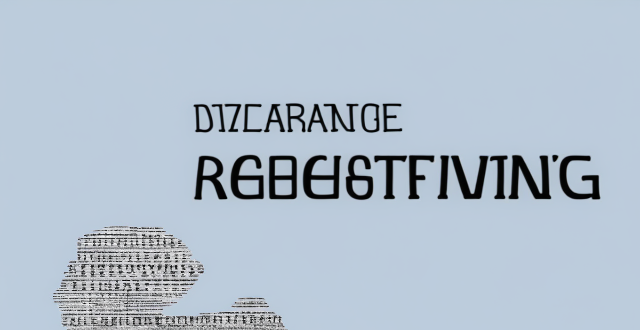Responsibility Respect

What is academic integrity ?
Academic integrity is a fundamental principle governing the conduct of research, teaching, and learning in academic institutions. It encompasses values and ethical standards promoting honesty, fairness, respect, and responsibility among students, educators, and researchers. The goal is to maintain trustworthiness and credibility by adhering to high ethical standards. Core values include honesty, fairness, respect, and responsibility. Key aspects are avoiding plagiarism, fabrication, cheating, multiple submissions, and collusion. Violating academic integrity can lead to loss of reputation, disciplinary action, legal consequences, diminished career prospects, and ethical implications. Adhering to academic integrity promotes a fair and just academic environment.

How does corporate social responsibility impact employee satisfaction and retention ?
Corporate Social Responsibility (CSR) is a business model that focuses on balancing profitability with social responsibility. It involves companies taking actions to improve societal well-being, environmental sustainability, and ethical practices. This approach not only benefits the community and the environment but also has a significant impact on employee satisfaction and retention. The relationship between CSR and employee satisfaction includes enhanced company image and reputation, alignment with personal values, and improved work environment. The relationship between CSR and employee retention includes lower turnover rates, increased loyalty, and higher engagement levels. In conclusion, corporate social responsibility plays a crucial role in enhancing employee satisfaction and retention. By prioritizing CSR initiatives, companies can create a positive work environment, attract and retain talent, and foster loyalty among their employees. As a result, businesses that embrace CSR are more likely to have a stable workforce and achieve long-term success.

How do ESG standards affect corporate responsibility ?
ESG standards shape corporate responsibility by providing a framework for measuring and managing company impact on the environment, society, and governance. They require companies to reduce their carbon footprint, ensure sustainable sourcing, promote diversity and inclusion, engage with communities, maintain ethical business practices, and encourage board diversity. Adhering to these standards demonstrates commitment to sustainability and social responsibility, leading to long-term success and profitability.

How are climate change and investor responsibility interconnected ?
Climate change and investor responsibility are interconnected in several ways. As investors, it is important to consider the impact of our investments on the environment and society as a whole. Here are some key points that highlight the interconnection between climate change and investor responsibility: 1. Environmental Impact of Investments 2. Risk Management 3. ESG Criteria 4. Regulatory Changes 5. Shareholder Activism 6. Reputational Risk

How does sportsmanship contribute to peace promotion ?
The text discusses the role of sportsmanship in promoting peace by fostering respect and tolerance, building teamwork and cooperation, teaching discipline and self-control, serving as a platform for dialogue, and encouraging leadership and responsibility.

What are the ethical implications of climate refugees and displacement ?
Climate change has led to the displacement of people, creating a new category of refugees known as "climate refugees." The ethical implications of this issue involve the right to life and security, respect for human dignity, responsibility and accountability, international cooperation, and sustainable development. It is essential to ensure that climate refugees have access to basic necessities like food, water, shelter, and healthcare, and treat them with compassion and empathy. Governments, corporations, and individuals must take responsibility for their actions and work towards mitigating the effects of climate change. International cooperation is necessary to develop policies and strategies that protect the rights of climate refugees and prevent further displacement. Sustainable development is also crucial in minimizing the impact of climate change on future generations and avoiding further displacement. Addressing these challenges requires collective action from all sectors of society.

How does academic integrity relate to the concept of intellectual property ?
The text explores the relationship between academic integrity and intellectual property. It defines academic integrity as the core values of scholarly work, including honesty, trust, fairness, respect, and responsibility, which are essential in research, teaching, and publishing. Intellectual property, on the other hand, refers to legal protections that give creators exclusive control over the use of their creations of the mind. The intersection of these two concepts is discussed in terms of respect for original work, protection of ideas, promotion of innovation, and ethical considerations. Both academic integrity and intellectual property laws stress the importance of respecting original work and protecting ideas. They also promote open access and sharing of knowledge while ensuring responsible conduct of research. The text concludes that upholding academic integrity contributes to a robust system of intellectual property that benefits society as a whole.

How can women show respect and courtesy in a multicultural setting ?
In a multicultural setting, women can show respect and courtesy by learning about different cultures, using polite language, being mindful of nonverbal communication, practicing active listening, and being open to learning from others. By doing so, they can avoid misunderstandings, foster positive relationships, and contribute to a more inclusive and respectful environment.

How do I respect the local environment when visiting an island ?
When visiting an island, it is important to respect the local environment. Here are some tips on how to do so: 1. Follow local customs and traditions by researching before you go and being mindful of your actions. 2. Reduce your carbon footprint by choosing eco-friendly transportation and packing light. 3. Conserve water and electricity by turning off lights and appliances when not in use and using water wisely. 4. Respect wildlife and nature by not disturbing wildlife and staying on designated paths. 5. Support sustainable tourism practices by choosing eco-friendly accommodations and participating in eco-friendly activities. By following these tips, you can help protect the local environment and contribute to a more sustainable future for the island community.

What is corporate social responsibility (CSR) ?
Corporate social responsibility (CSR) is an approach where companies voluntarily integrate ethical and sustainable practices into their business model. It covers various aspects including environmental sustainability, ethical sourcing, community engagement, stakeholder relationships, and transparency. Implementing CSR can enhance a company's reputation, improve employee loyalty, and manage risks better. From a societal perspective, it can elevate living standards, promote sustainable development, and set ethical standards across industries. However, criticisms include potential greenwashing, increased costs for consumers, and a lack of universal standards for measuring CSR effectiveness. Despite these criticisms, the incorporation of CSR is becoming increasingly common, indicating a shift towards a more ethical and sustainable global economy.

What role does education play in promoting ethical behavior in sports ?
Education is crucial for promoting ethical behavior in sports, including fair play, adherence to rules, and good sportsmanship. It helps athletes understand the importance of honesty, integrity, respect for opponents, and following game rules and anti-doping policies. By developing these values, athletes can create a positive atmosphere in sports and thrive both on and off the field.

How do team sports contribute to social skills development in teenagers ?
Team sports offer a plethora of benefits for teenagers, one of the most significant being the development of social skills. Here's how: 1. **Communication**: Team sports require effective communication to achieve success, such as calling plays, using body language, and non-verbal signals. 2. **Cooperation**: Playing on a team requires cooperation among players to work together towards a common goal, like passing the ball or working together on defense. 3. **Leadership**: Leadership is necessary for success in team sports, whether it's the captain leading warm-ups or a player stepping up in a critical moment. 4. **Respect**: Respect is crucial in team sports, as players must respect their coaches, teammates, opponents, and officials to succeed both on and off the field.

In what ways do Olympic Games foster a spirit of unity and peace among participants ?
The Olympic Games are a platform for unity and peace, promoting mutual respect among athletes, encouraging cultural exchange, and celebrating human achievements. The principles of the Olympic Movement foster a positive environment within the Games and inspire individuals to embrace diversity and strive for excellence in their lives.

Why is corporate social responsibility important for businesses ?
In full: Why Corporate Social Responsibility is Important for Businesses Corporate social responsibility (CSR) is crucial for businesses as it helps manage reputation, mitigate risks, foster innovation and competitive advantage, and attract and retain top talent. Companies that engage in socially responsible practices are seen as trustworthy, ethical, and caring by consumers, investors, and employees. This positive image can lead to increased customer loyalty, higher employee retention rates, and better access to capital. By adopting sustainable practices, companies can reduce their exposure to regulatory fines, lawsuits, and reputational damage resulting from environmental or social misconduct. CSR also encourages innovation and competitive advantage by promoting creativity and collaboration within organizations. Today's job seekers are increasingly looking for employers who share their values and demonstrate a commitment to making a positive impact on society and the environment. By embracing CSR, companies can attract and retain employees who are passionate about making a difference in the world. As consumers become more aware of the impact of business on society and the environment, companies that prioritize CSR will be well-positioned to succeed in the long run.

What is climate debt ?
Climate debt is a concept that suggests wealthy nations owe a moral and ecological debt to poorer countries due to their disproportionate contribution to global warming. The idea is based on the principle of "common but differentiated responsibilities," which recognizes that all countries have a responsibility to address climate change, but the extent of this responsibility should be based on historical contributions and capacity to take action. Key points include historical responsibility, capacity to mitigate, and vulnerability and adaptation. Wealthy nations have been industrializing for longer and have more resources to invest in renewable energy, while poorer countries often lack the financial and institutional capacity to adapt to the impacts of climate change. Addressing climate debt is seen as an essential component of any equitable and effective response to the urgent challenge of climate change.

What is the role of sports in character building during adolescence ?
The article discusses the significant role sports play in character building during adolescence. Sports contribute to physical health and self-discipline, teamwork and social skills, goal setting and perseverance, responsibility and time management, emotional intelligence and stress management abilities. Engaging in sports not only benefits young individuals physically but also shapes their personality and values, preparing them for success in all aspects of life.

What impact does multicultural education have on student achievement ?
The article discusses the impact of multicultural education on student achievement. It states that this type of education increases students' cultural awareness and sensitivity, enhances their critical thinking skills, and improves academic performance. Students become more aware of their own cultural biases and learn to appreciate diversity, leading to better relationships with peers and teachers. Multicultural education also encourages students to question authority figures and challenge dominant narratives, promoting independent thought and creativity. Research has shown that when students feel valued and respected for their unique cultural backgrounds, they are more likely to engage in learning activities and perform well academically. Overall, multicultural education creates an inclusive learning environment that promotes equity, social justice, and respect for all cultures, preparing students for success in an increasingly diverse world.

What are some examples of successful corporate social responsibility programs ?
Successful Corporate Social Responsibility (CSR) programs benefit society and the environment, enhancing a company's reputation. Examples include Starbucks supporting coffee farmers, Coca-Cola providing clean water in Africa, Unilever reducing carbon emissions, Microsoft using AI for environmental solutions, Walmart reducing food waste, Google powering operations with renewable energy, Patagonia donating to environmental causes, and Johnson & Johnson raising funds through social media engagement. These programs not only make a positive impact but also strengthen relationships with stakeholders.

Can corporate social responsibility lead to increased profits for businesses ?
The text discusses the potential for corporate social responsibility (CSR) to increase profits for businesses. It outlines key points such as enhanced brand reputation, improved employee morale and productivity, competitive advantage, risk mitigation, and access to capital as benefits of CSR. However, it also acknowledges potential challenges like short-term costs, difficulty in measuring ROI, and skepticism from consumers and stakeholders. The text provides examples of successful CSR programs that have led to increased profits, including Patagonia, Ben & Jerry's, and Tesla. It concludes that while the relationship between CSR and profitability is complex, a strong commitment to CSR can indeed lead to increased profits if approached authentically and strategically.

What is the responsibility of corporations in promoting environmentally friendly practices ?
Corporations have a significant role to play in promoting environmentally friendly practices. The responsibilities include reducing their carbon footprint, sustainable sourcing, effective waste management, water stewardship, biodiversity protection, and education and awareness. By adopting sustainable strategies, corporations can significantly reduce their negative impact on the environment and contribute to a more sustainable future.

In what ways does academic integrity relate to professional ethics ?
**Academic Integrity and Professional Ethics: An Interconnected Relationship** The concepts of academic integrity and professional ethics are fundamentally interconnected, sharing principles like honesty, fairness, responsibility, respect, and courage. Academic integrity lays the groundwork for professional ethics by instilling foundational skills such as critical thinking, research integrity, and ethical decision-making. These skills transition from academia to profession, building reputations for reliability and trustworthiness. Therefore, promoting academic integrity is crucial not only for the academic community but also for the broader professional world.

What role do governments play in promoting cultural understanding and acceptance in a multicultural society ?
Governments can promote cultural understanding and acceptance in multicultural societies by implementing policies and programs that foster diversity, inclusion, and respect for different cultures. They can launch education and awareness campaigns, enact legislation and policies, engage with communities and partner with NGOs, and promote international cooperation to create an environment where diversity is celebrated, respected, and embraced.

How can students maintain academic integrity in their studies ?
The text discusses the importance of maintaining academic integrity in education and outlines several ways for students to do so. It emphasizes understanding the concept of academic integrity, adhering to school policies, citing sources properly, avoiding plagiarism, being honest in assessments, respecting intellectual property rights, maintaining confidentiality, reporting incidents of misconduct, and seeking help when needed. The text concludes that maintaining academic integrity is crucial for students to achieve success in their academic pursuits and beyond.

What are the key elements of an inclusive policy ?
Inclusive policies aim to ensure equal opportunities and access for all individuals, regardless of their background or identity. The key elements of an inclusive policy include recognition and valuing of diversity, accessibility and accommodation, equity and fairness, empowerment and participation, respect and dignity, continuous learning and improvement, collaboration and partnership, and accountability and responsibility. By incorporating these elements into our policies and practices, we can create a more inclusive and equitable community where everyone has the opportunity to thrive.

Why is academic integrity important in education ?
Academic integrity is crucial in education as it promotes honesty, builds trust, ensures fairness, cultivates respect, and develops responsibility. It prevents damage to reputation and erosion of confidence in research, while also ensuring actual learning outcomes. Educators must reinforce these principles to create a culture that values honesty and excellence in scholarship.

Are there specific industries that have a greater responsibility to lead in climate-focused CSR initiatives, and why ?
The article discusses the responsibility of specific industries in leading climate-focused Corporate Social Responsibility (CSR) initiatives. The top five industries identified are energy production, transportation, agriculture, manufacturing, and real estate development. These industries have a greater responsibility due to their significant contributions to greenhouse gas emissions and other environmental challenges. By taking action within these sectors, businesses can make a meaningful impact on reducing carbon emissions and promoting sustainability across the globe.

How to grow haemorrhoid to return a responsibility after pregnancy_ How to grow haemorrhoid to return a responsibility after pregnancy

How does sports improve social skills ?
Sports significantly enhance social skills through teamwork, confidence-building, dealing with diversity, interpersonal development, and leadership. Participation fosters cooperation, communication, shared responsibility, achievement, resilience, public performance, acceptance, adaptability, respect, networking, empathy, conflict resolution, role assumption, motivation, and decision-making. These skills are transferable to various aspects of life, making sports a valuable platform for personal growth and social interaction.

What are the ethical considerations while sharing climate information ?
Sharing climate information is crucial but must be done ethically. Key considerations include: accuracy and transparency, fairness and impartiality, respect for privacy, responsibility towards vulnerable groups, clarity and accessibility, and encouraging dialogue and action. By prioritizing these principles, we can communicate about climate change effectively and responsibly.

What strategies have been successful in integrating sports programs with core educational values ?
Integrating sports programs with core educational values involves aligning athletic goals with academic objectives, promoting inclusivity and respect, fostering lifelong health and wellness, developing personal qualities and leadership skills, ensuring collaboration between educators and coaches, and continuously assessing progress for improvement.